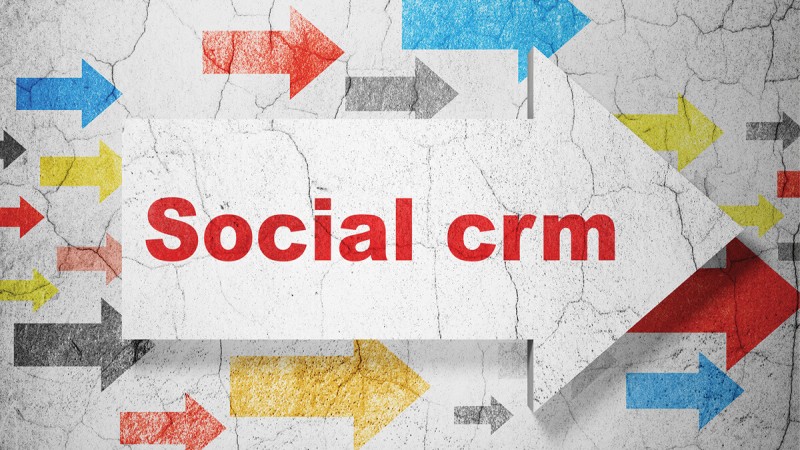
It’s Time to Deploy, not Dabble with, Social CRM
Despite today’s competitive marketplace, many companies lack a solid social CRM strategy to engage with customers—they’re still experimenting with the platforms without realizing the strategy’s potential.
I was late to the table as well. I was still employing traditional CRM strategies with my clients because I wasn’t sure the current platforms were here to stay. They are!
So if you haven’t fully embraced social CRM, you’re opening yourself up to competitive erosion from the companies that have.
Paul Greenberg, often referred to as the godfather of CRM, describes social CRM this way:
“Social CRM is a business strategy supported by a technology platform, business rules, workflow, processes, and social interactions, designed to engage in a collaborative conversation to provide a mutually beneficial value in a transparent environment.”
Traditional CRM is typically transactional; social CRM is behavioral. Traditional CRM is company-centric and focused on sales; social CRM is truly customer-centric. Traditional CRM is about implementing the technology; social CRM is focused on applying the strategy.
Traditional CRM architecture is typically designed to manage these four primary areas.
- Sales: Most CRM platforms are designed to drive more sales by collecting customer data and providing insights to manage the client relationship. The goal is to record customer interactions and use that data to target new opportunities.
- Marketing: The use of marketing with CRM lets companies advertise directly to customers, with communication flowing in one direction: company to customer.
- Service and support: Within the framework of traditional CRM, most service and support channels function within specific hours, and processes are frequently automated, generic, and lack personalization.
- Customer feedback: Companies use traditional CRM to connect with the customer and proactively request feedback. It is driven by the company and adds little value to the customer.
Here’s how social CRM can be a traditional CRM enhancer:
- Sales: A well-designed social CRM strategy is about connecting and developing potential customers through education, conversation, and nurturing.
- Marketing: Customers often resist traditional direct advertising and want conversation and engagement. A well-crafted social marketing strategy is a great way to reduce traditional marketing costs significantly and engage with your customers in a meaningful way.
- Service and support: Companies can provide support across all popular channels and communicate with their customers using their preferred platforms.
- Customer feedback: Customer feedback is in the hands of the customer. They share their experiences across all social platforms with their friends and networks.
The goal, then, of traditional CRM is to drive sales and maintain relationships. The goal of social CRM is to encourage a conversation and build a connected tribe, and sales are a natural result. Social CRM is fundamentally about connecting with the customer in a meaningful way, with the right information, on the right channel, at the right time. With social data insights, companies can target and create specific and timely offerings to maximize customer engagement and conversions.
The data shows us that through the power of social platforms, customers feel more connected and empowered than ever before. With that in mind, companies will need to employ response and engagement strategies across all social platforms. Companies that have CRM platforms that make effective use of digital, mobile, and social data alongside data gathered from traditional customer touchpoints are easily outpacing those that don’t.
A well-employed social CRM strategy will create better customer connections, deliver targeted, real-time personalized messages, give responsive real-time customer service, and help companies engage the right audience at the right time in the buyer’s journey, while providing real-time reporting and insights.
Remember, the overall objective of social CRM is to integrate customers into the operations mix and feedback loop so that they can have input into the way they experience your brand.
Ignoring this strategy will greatly reduce your relevance and authority in the marketplace.
Michael Vickers is executive director of Summit Learning Systems and the author of Dance of the Rainmaker: Creating Authentic Differentiation in a Competitive Marketplace.


